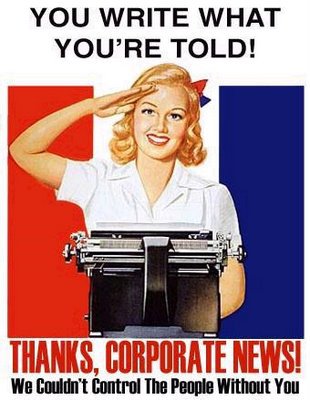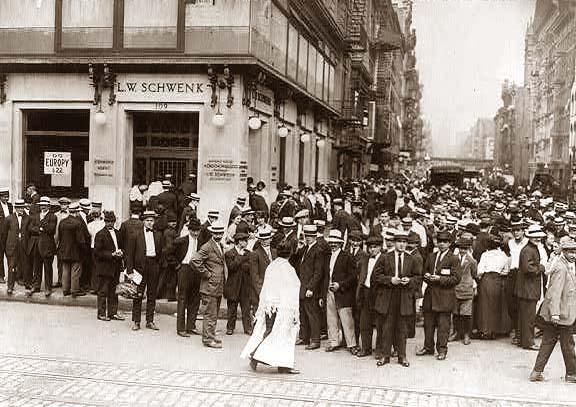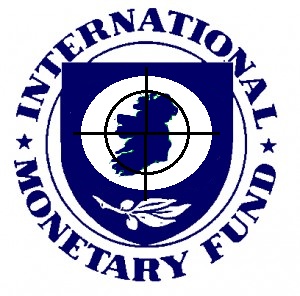Over 30 years of anarchist writing from Ireland listed under hundreds of topics
Opinion
Don't Let Lies Defeat The Protest Movement
 This article was written prior to the big ICTU anti-cuts demonstration of November 2010 and in the afterfath of a large anti-student fees demonstration where a two thousand strong militant breakaway was attacked by Gardaí.
This article was written prior to the big ICTU anti-cuts demonstration of November 2010 and in the afterfath of a large anti-student fees demonstration where a two thousand strong militant breakaway was attacked by Gardaí.
An article headlined "Gardaí on alert for Dublin protest" published this evening on the Irish Times website is a clear attempt by the political establishment to divide protesters and create an atmosphere of fear amongst those attending.
Garda Chief Supt Michael O'Sullivan is quoted as saying “there are individuals and groups who seek to exploit such events for their own ends”. This is a globally recognised police tactic of trying to divide the movement into "good" and "bad" protesters. This follows weeks on from disturbances at the national student march where Gardaí in riot gear launched an unprovoked attack on demonstrators.
The 4 year Plan will further destroy the health service
 While the state continues to be rocked by the result of devastating effects of 10 years of rampant capitalism crashing the focus has been conveniently been shifted from the serious problems within our health service. A common belief is that before things get better they must get worse and under the 4 year plan they are about to get a lot worse. In the case of a health service this couldn’t be further from the truth. The obvious result of a worsening health service is higher national morbidity and mortality. Are we prepared to allow this to occur?
While the state continues to be rocked by the result of devastating effects of 10 years of rampant capitalism crashing the focus has been conveniently been shifted from the serious problems within our health service. A common belief is that before things get better they must get worse and under the 4 year plan they are about to get a lot worse. In the case of a health service this couldn’t be further from the truth. The obvious result of a worsening health service is higher national morbidity and mortality. Are we prepared to allow this to occur?
Is causing a Run on the Banks really a strategy that makes sense?
 Eric Cantona, French actor and former footballer, has recently been calling for a run on the banks. The idea is that the bankers generated this crisis and since our democratic institutions are either incapable or unwilling to hold the bankers accountable, we should take matters into our own hands.
Eric Cantona, French actor and former footballer, has recently been calling for a run on the banks. The idea is that the bankers generated this crisis and since our democratic institutions are either incapable or unwilling to hold the bankers accountable, we should take matters into our own hands.
Letter on Millbank student riots replying to Belfast Telegraph
The only way to stop cuts is to stand up now
I was disappointed to read that the editorial of this paper (Belfast Telegraph November 11) has pinned the blame of the student riots in London on ‘anarchist elements’. Firstly this assumption is based on a misguided view that students are incapable of acting in there own interests and underestimates the genuine anger and frustration out there.
This is not an IMF bailout but end to ECB life support
 Why is the director of the IMF complaining that the rate of progress of the IMF negotiations in Dublin is going too slowly? What's wrong with this picture? The answer is nothing, so long as you understand that the IMF are not the driving force in these negotiations.
Why is the director of the IMF complaining that the rate of progress of the IMF negotiations in Dublin is going too slowly? What's wrong with this picture? The answer is nothing, so long as you understand that the IMF are not the driving force in these negotiations.
Despite the newpaper headlines, what is happening is not an IMF bailout. This is a European debt restructuring process in which the IMF are playing a merely supportive role as consultants. This is a Eurozone process and although the political masters of the Eurozone, through their EU Commissioners, have the final say on passing or vetoing the final agreement, the true driving force behind this process is the ECB.
Who is afraid of the IMF - their opportunity and ours
 It's now official, the Irish state is in talks with the EU and the IMF about a so called 'rescue plan' to bail out the Irish capitalist class from the disaster created by the international crash of the capitalist economic system. A crisis that was magnified in Ireland by the corruption of local crony capitalism on the one hand and the dependency of the economy on 'globalization' on the other. Trapped between such a cast of crooks and idiots it is perhaps not surprising that many in Ireland hope things will be improved when the running of our lives will be handed over to those who many hope might have a clue.
It's now official, the Irish state is in talks with the EU and the IMF about a so called 'rescue plan' to bail out the Irish capitalist class from the disaster created by the international crash of the capitalist economic system. A crisis that was magnified in Ireland by the corruption of local crony capitalism on the one hand and the dependency of the economy on 'globalization' on the other. Trapped between such a cast of crooks and idiots it is perhaps not surprising that many in Ireland hope things will be improved when the running of our lives will be handed over to those who many hope might have a clue.
"IRA Undefeated Army" a dangerous myth
 James McBarron was a long time activist in Sinn Fein before becoming an anarchist in the aftermath of the Good Friday agreement. In this opinion piece he wrote for publication on republican discussion forums he argues that although it is "completely understandable that most thinking republican activists are angry and enraged at how they were duped and used by the former IRA and current Sinn Fein leadership … this does not excuse people from properly examining their own roles and politics and the politics and conditions that have lead to the current situation." He then points to four areas which he thinks represent fatal weaknesses of 'dissident' Irish republicanism in general.
James McBarron was a long time activist in Sinn Fein before becoming an anarchist in the aftermath of the Good Friday agreement. In this opinion piece he wrote for publication on republican discussion forums he argues that although it is "completely understandable that most thinking republican activists are angry and enraged at how they were duped and used by the former IRA and current Sinn Fein leadership … this does not excuse people from properly examining their own roles and politics and the politics and conditions that have lead to the current situation." He then points to four areas which he thinks represent fatal weaknesses of 'dissident' Irish republicanism in general.
Climate Change - Radio Solidarity Program 7
 An issue that’s been put on the back burner since the economy has fallen through the plug hole. We talk in Program 7 of Radio Solidarity to two women Jerrieann Sullivan and Molly Walsh who’ve been to the forefront of activism in ensuring that this issue has not disappeared off the agenda. They’ve both been involved in the recent Climate Camps amongst other campaigns and actions.
An issue that’s been put on the back burner since the economy has fallen through the plug hole. We talk in Program 7 of Radio Solidarity to two women Jerrieann Sullivan and Molly Walsh who’ve been to the forefront of activism in ensuring that this issue has not disappeared off the agenda. They’ve both been involved in the recent Climate Camps amongst other campaigns and actions.
Figures show 33,000 Irish millionaires still own assets worth €121 billion - Yes there is a pot of gold!
 Confirmation that a large amount of wealth remains concentrated in the hands of a tiny number of Irish people has come from an analysis of figures by Tom O’Connor, Lecturer in Economics in Cork Institute of Technology. O’Connor has analysed the figures contained in the Bank of Ireland’s ‘Wealth of the Nation’ report which stated that there were 33,000 millionaires in Ireland in 2006. The total ‘net worth’ of these individuals (i.e. excluding the value of their principal residences and allowing for any borrowings) in 2006 was €156.21 billion.
Confirmation that a large amount of wealth remains concentrated in the hands of a tiny number of Irish people has come from an analysis of figures by Tom O’Connor, Lecturer in Economics in Cork Institute of Technology. O’Connor has analysed the figures contained in the Bank of Ireland’s ‘Wealth of the Nation’ report which stated that there were 33,000 millionaires in Ireland in 2006. The total ‘net worth’ of these individuals (i.e. excluding the value of their principal residences and allowing for any borrowings) in 2006 was €156.21 billion.
Beware the Zombie Developers and Vampire Bankers. Beware the myth that the wealth has disappeared!
Zombie developers….. Vampire bankers….. Ghost estate creators….. Black holes that swallow tens of billions of Euros…. They sound like characters from a particularly eerie Hallowe’en tale of horrors. However while they might be spooky, there’s nothing fictional about this array of characters. They stalked our land during the era of the recently-departed Celtic Tiger. But now they’ve gone to ground. They’ve disappeared, they would have us believe. And if they themselves haven’t actually physically disappeared, then their wealth most definitely has.

